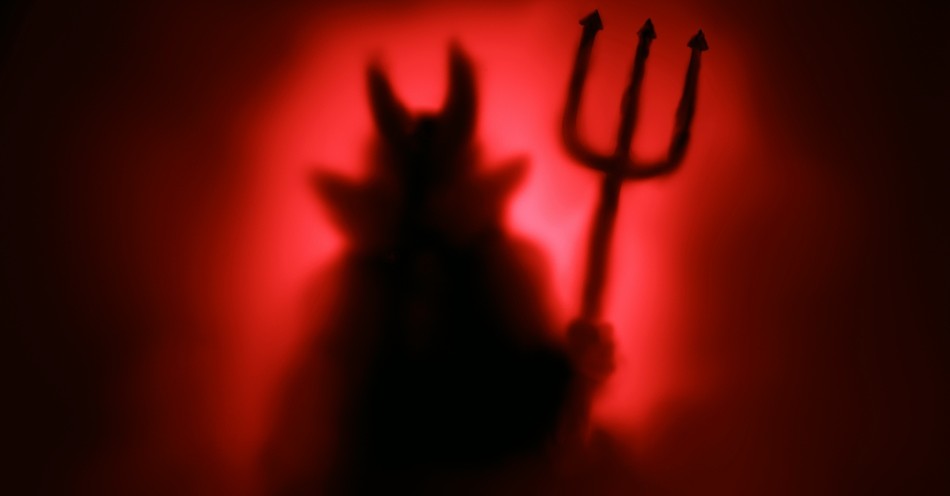Human beings, John Calvin said, are incurably religious creatures. Left to our own devices, we will start worshiping something or someone, whether or not that means dabbling in the supernatural and calling on spirits, holy or otherwise. This is true even for those who don’t take the supernatural seriously. Such people may assume their dabbling is harmless, or artistically edgy. But they couldn’t be more dangerously mistaken.
Writing in The New York Times earlier this month, Ross Douthat commented on the growing interest in astrology, “manifesting” videos on TikTok, and spiritual exploration with psychedelic drugs. These things, he argues, are signs that our supposedly secular society is in the midst of a spiritual awakening, but one that involves the wrong types of spirits.
Unrestrained by theology or organized faith, people eager for transcendence are opening doors without considering what might walk through. For example, Douthat notes the golden statue of a woman-like creature that was recently placed atop a New York City courthouse. The bizarre figure features hair braided into horns, arms reminiscent of tentacles, and a lace collar in apparent homage to the late Supreme Court Justice Ruth Bader Ginsberg. It’s an unsettling mashup of Earth goddess, abortion politics, and classic demon imagery that embodies our society’s experimental spirituality.
More overtly hellish antics took the stage at this month’s Grammy Awards, where “nonbinary” pop singer Sam Smith literally dressed up as the devil and performed a song called “Unholy” with transgender artist Kim Petras. Progressive commentators were quick to lecture religious conservatives who were supposedly “freaking out” over Smith’s horns and hooves. “These performers probably don’t actually believe the devil exists,” said one left-wing host. It’s just “artistic expression.”
Is it possible the devil doesn’t care? Maybe Smith and the artist behind the New York courthouse statue are just trying to be edgy or being pulled along by the allure of the taboo. Maybe people who experiment with occult spirituality and “expanded consciousness” are just fooling around. Maybe flirtations with spiritual darkness are only a big bluff.
But what if Satan calls that bluff?
As Thaddeus Williams pointed out in WORLD, the founder of the Church of Satanism, Anton LaVey, also treated the prince of darkness as a metaphor for self-expression. Doubtless, the very real devil overlooked such details. I imagine he’s too clever to object to people worshiping him on the trivial grounds that they’re being tongue-in-cheek about it.
Douthat concludes with a stern warning to his non-Christian readers: Not all that glitters is gold, and the idea that certain forces are out to trick you or use you recurs across religious cultures. … There’s reason to worry about a society in which structures have broken down and masses of people are going searching without maps or playing around in half-belief or deploying, against what remains of Christianity, symbols that invoke multiple spiritualities at once.
A post-Christian society may be about to learn what Christians have always taught: Not all spiritual entities are friendly or helpful. A chilling 2018 article in The Atlantic chronicled the growing demand for official Catholic exorcists, even while practicing Catholics dwindle as a share of the population. Something is going on that psychologists can’t handle. Modern Westerners’ naïve approach to the spiritual realm — treating it as a game or a joke or a political sting — leaves them especially vulnerable to attack.
In C.S. Lewis’ The Last Battle, the main characters have just witnessed Tash, the terrifying god of the Calormenes, entering Narnia in answer to a summons from the villain, who called on Tash as a bluff, not actually believing in him. After the monstrous vulture-god calls this bluff, and (spoiler alert) eats the irreverent villain, the good dwarf Poggin observes, “People shouldn’t call for demons unless they really mean what they say.”
I doubt Satan cared much about the Grammys. As Douthat admits, plenty of experimental spirituality is more interested in possessing your wallet than your soul. Still, as the façade of secularism slips and people increasingly call (as humans always have) on invisible realities, no one should be surprised when those realities answer.
Christians know who and what we wrestle against. What we can offer to those looking for whatever it is they are looking for in all the wrong places is more than another form of spirituality. We can introduce them to the One who made them, Who defeated the forces of darkness, and Who always answers those who call on Him.
This Breakpoint was co-authored by Shane Morris. For more resources to live like a Christian in this cultural moment, go to colsoncenter.org.
Publication date: February 24, 2023
Photo courtesy: ©iStock/Getty Images Plus/CasPhotography
John Stonestreet is President of the Colson Center for Christian Worldview, and radio host of BreakPoint, a daily national radio program providing thought-provoking commentaries on current events and life issues from a biblical worldview. John holds degrees from Trinity Evangelical Divinity School (IL) and Bryan College (TN), and is the co-author of Making Sense of Your World: A Biblical Worldview.
The views expressed in this commentary do not necessarily reflect those of CrosswalkHeadlines.
BreakPoint is a program of the Colson Center for Christian Worldview. BreakPoint commentaries offer incisive content people can't find anywhere else; content that cuts through the fog of relativism and the news cycle with truth and compassion. Founded by Chuck Colson (1931 – 2012) in 1991 as a daily radio broadcast, BreakPoint provides a Christian perspective on today's news and trends. Today, you can get it in written and a variety of audio formats: on the web, the radio, or your favorite podcast app on the go.




